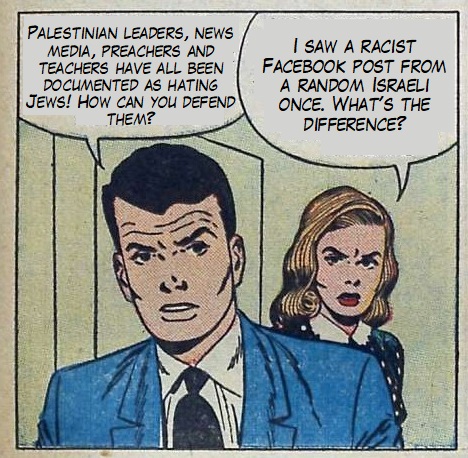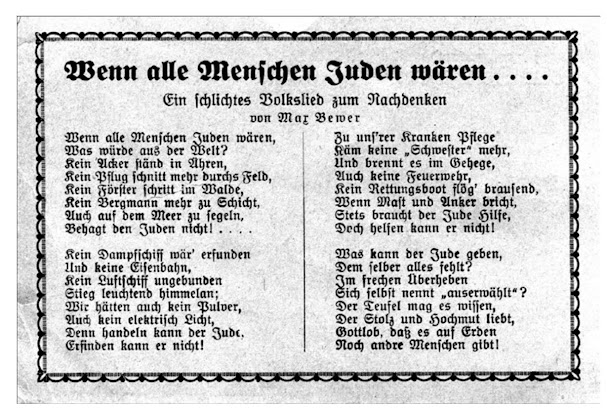Meir Y. Soloveichik: What Zionism Owes Yavneh
On Hanukkah, as part of the country-wide celebration, the Israel Antiquities Authority (IAA) opened to the public a Jewish town excavated from the earth. Yavneh was where the Sanhedrin, the supreme religious and judicial body of rabbinic Judaism, took up residence in 70 C.E. Talmudic tradition accords the credit for the Sanhedrin’s survival to the sage Yohanan ben Zakkai, who fled Jerusalem before it fell. Today, an entire home has been uncovered in Yavneh, a home that clearly belonged to Jews who kept kosher and followed the Levitical laws of ritual purity. It may have been the domicile of a Sanhedrin member. Nearby, a cemetery may well bear the bodies of some of the most important rabbis in Jewish history.Mark Regev: Why is support for a two-state solution declining?
All of Jewish ritual from the destruction of the Second Temple to the present has been defined by what ben Zakkai and his Sanhedrin ordained in Yavneh. It is, after Jerusalem, the most influential site in the history of Jewish law.
Now Yavneh’s significance is being celebrated and highlighted by Israeli archeologists. The excavators informed the media that the town represents “a direct voice from the past, from the period when the Jewish leadership salvaged the remaining fragments from the fall of the Temple, went into exile in Yavneh, and set about re-establishing the Jewish people there.” Simultaneously the IAA is staging an exhibit in northern Israel illustrating how the Sanhedrin preserved Judaism and the memory of Jerusalem. Rightly understood, these excavations and this exhibition are nothing less than the righting of a historic wrong, a recognition of all that modern Zionism owes to Yavneh, the Sanhedrin, and the man who oversaw its survival.
While rabbinic sources differ as to details of Yohanan ben Zakkai’s story, all agree as to certain facts. The rabbi fled Jerusalem while the Jewish rebels against the Romans were still fighting. He then met with the Roman authority and requested to be allowed to settle the Sanhedrin in Yavneh. But it is often unappreciated why he did so; why did he not hope for the miraculous salvation of the city, as it had been saved in the age of the Maccabees and so often in the Bible? The Talmud stresses that ben Zakkai was horrified by how the Jews in Jerusalem, riven by factionalism, were attacking one another inside the city even as they fought the Romans without. The last straw for ben Zakkai, according to the Talmud, was when the rebels burned their rivals’ food. This rabbinic text parallels another in Josephus’s contemporaneous history, The Jewish War. Josephus describes the horrific behavior of Jerusalem’s Jews toward one another: “It was as if to oblige the Romans they were destroying all that the city had laid up against a siege and hamstringing their own powers…. It was hunger that defeated them, a thing that could never have happened if they had not brought it about themselves.”
Jews lost Jerusalem by attacking one another. Nearly 2,000 years later, the moment would be cited by Menachem Begin in 1948 when he stood upon the ship Altalena as the forces of his political rival, David Ben Gurion, fired upon members of Begin’s Irgun, and Begin ordered his men not to fire back. Yohanan Ben Zakkai, seeing a Jerusalem where Jew slaughtered Jew, sensed the city would fall not only because of the brutality of the Roman emperor Vespasian’s assault, but because a Jerusalem that had eschewed Jewish unity had no right to expect salvation. He therefore set about preserving Jewish tradition, preparing for an age when Jews could claim Jerusalem again.
In his famous 2009 Bar-Ilan University address, prime minister Benjamin Netanyahu placed Palestinian recognition of Israel as the nation-state of the Jewish people as an indispensable ingredient in any future peace, arguing that “the Palestinian leadership must arise and say: ‘Enough of this conflict. We recognize the right of the Jewish people to a state of their own.’”Ruthie Blum: Yes, prime minister
Of course, Netanyahu has been accused of deliberately creating obstacles to peace.
Unlike the Likud prime minister, Tzipi Livni is “known for her efforts to resolve the Israeli–Palestinian conflict.” Yet in the lead-up to the November 2007 Annapolis peace conference, she as foreign minister urged the Palestinian leadership to recognize Israel as the national home of the Jewish people, seeing this as a vital prerequisite element in a genuine process of reconciliation.
The Palestinians refused to do so.
Herein lies the fundamental contradiction: Palestinians demand from Israel recognition of their right to national self-determination, while simultaneously refusing to acknowledge the corresponding right of Jewish people.
Palestinians counter that they accepted Israel in 1993 as part of Oslo when the sides exchanged mutual letters of recognition, and that should suffice. But acknowledging Israel as a fact is no substitute for affording it legitimacy. (Iran recognizes Israel as fact, like cancer is a fact, a cancer that must be removed.)
Ultimately, if the Jewish state remains fundamentally illegitimate in the eyes of our Palestinian neighbors, what sort of peace are they offering us?
When Israeli prime ministers Ehud Barak and Ehud Olmert adopted proposals that dealt with the post-’67 issues in a highly forthcoming manner, even accepting the redivision of Jerusalem, it was never enough for the Palestinian leadership. If the heart of the dispute is 1948 and not 1967, it really does not matter how flexible Israel is in the negotiations, how acquiescent our proposal on final borders, or how many settlements we offer to uproot. Contrary to the conventional wisdom, for Palestinians, the real problem is not Ariel and Ma’aleh Adumim, but Herzliya and Ra’anana.
Perhaps the international community needs to appreciate its accepted formula is more convention than wisdom.
Yes, prime minister, you know this about the settlers. You know it, as well, about the PA, which on Wednesday lauded Bar Lev for presenting the “first official recognition” of “settler violence,” and called on more Israeli ministers to “condemn and oppose settler terrorism and attacks on Palestinians.”
Regional Cooperation Minister Esawi Frej, from the left-wing Meretz Party, did so on Tuesday, tweeting: “Not all settlers are violent, but there is a great deal of violence that originates in the settlements. Anyone who ignores this problem, and the need to deal with it, encourages it.”
Yes, Prime Minister, you’re familiar with Frej. He’s the minister who last month led Israel’s delegation to the biannual gathering of PA donor countries in Oslo, where he did some fundraising for the leadership in Ramallah. Their till, after all, has been on the wane as a result of their refusal to cease paying stipends to the families of Palestinians killed while committing terrorist attacks on Israelis, or to those survivors imprisoned for doing so.
Frej is also the guy who accompanied Health Minister Nitzan Horowitz on a pilgrimage to Ramallah in October to suck up to PA Chairman Mahmoud Abbas and assure the terrorist-in-a-tie that the left-wing members of the Israeli government were on a mission to “keep the two-state solution alive, not let it disappear and not sabotage the chance of reaching it in the future.”
Horowitz told Abbas, “We believe that there’s no room for unilateral measures… No new settlements, no illegal outposts, and no violence by extremists among the settlers.”
Yes, prime minister, though you are cognizant that the Palestinian apparatus, not the settlement movement, is the real cause of “violent extremism,” you are stuck with the likes of Bar Lev, Frej and Horowitz for the duration of this coalition. But it’s a concoction that you yourself contrived.
The “settlers in Judea and Samaria [who] have been suffering from violence and terrorism, daily, for decades” – many of whom voted for your party – aren’t thanking you for your lip service.















































